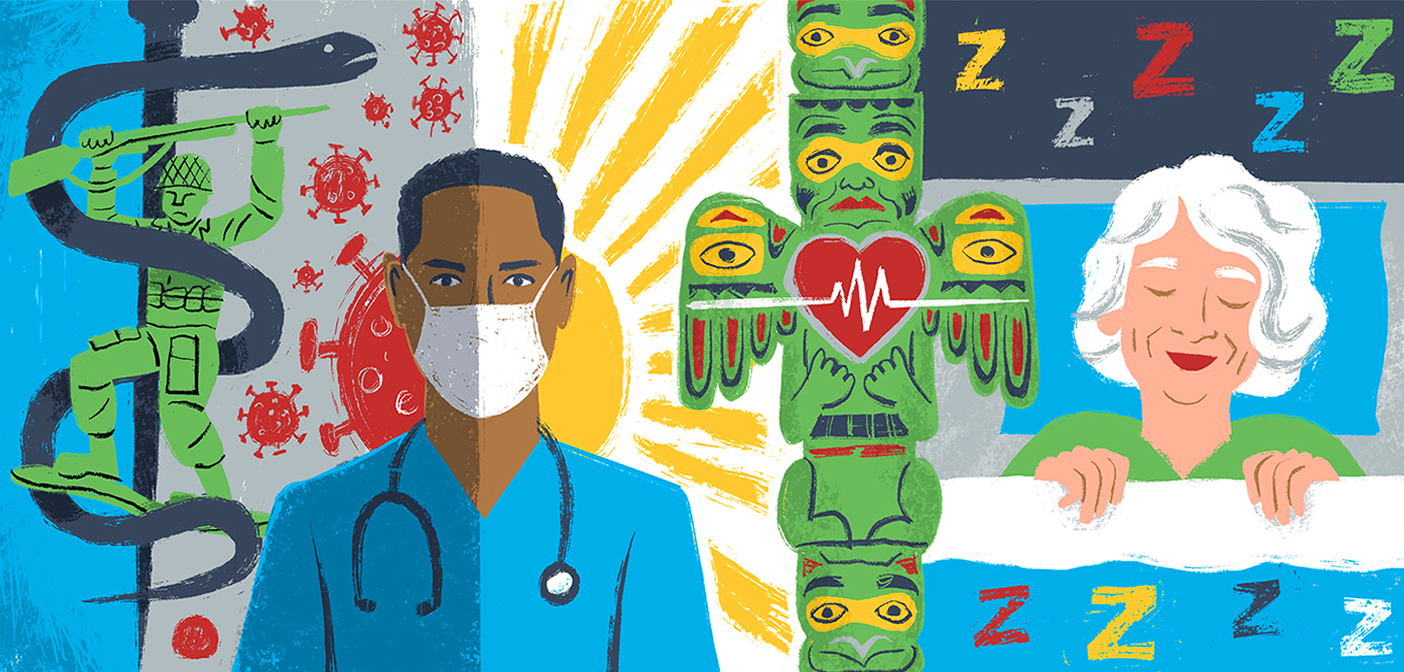When I first announced that I was planning to go to nursing school, a family friend and former nurse said to me, in the same breath, you’ll never find a more rewarding career than nursing, and watch out – old nurses eat their young. At that time, I had no idea what she was talking about, but now, with just a few months standing between me and my first job, I’m scared.
The media often portrays the discord between physicians and nurses, but little attention is given to the issue of nurse-on-nurse discord, or lateral violence in the workplace, yet it is estimated that 46 to 100 percent of nurses’ experience lateral violence (i.e. incivility and bullying).
Lateral violence has been defined as “nurses covertly or overtly directing their dissatisfaction inward toward each other, towards themselves, and toward those less powerful than themselves,” which can take many forms. There are several theories as to why lateral violence is so ubiquitous in nursing, including a power imbalance where nurses do not feel valued and power resides with physicians. The antiquated hierarchical systems that operate within hospitals today “obscures the value of [the nursing] profession that is still predominately female,” according to Cynda Rushton, PhD, RN, FAAN, Anne and George L. Bunting Professor of Clinical Ethics at the Johns Hopkins School of Nursing. This manifests as powerlessness and fear, which is turned inward and against colleagues.
There is an argument to be made that since lateral violence has been present in nursing practice for so long, it is an ingrained part of nursing culture. Thus, the theory of ethical relativism, which asserts that the morality of an act is influenced by the culture the act occurs in, may be applied. Lateral violence experienced by new nurses can be viewed as a rite of passage within the profession and an exercise that builds resilience. I however, disagree.
New graduates are particularly vulnerable to becoming victims of this type of aggression with the results of higher absenteeism, reduced work satisfaction, increased stress, and desire to leave their job. Intention to leave their job, and the resulting turnover rate of 17.2 percent in nursing in 2015, has huge financial implications for healthcare systems. Each nurse who leaves his or her job costs a hospital between $37,700 – $58,400.
Beyond economics, though compelling, lateral violence is a serious issue for several ethical reasons. All nurses, especially new nurses, need a safe and civil workplace that encourages and supports them to practice to the full extent of their license. New nurses experience moral distress in response to lateral violence because threats to their integrity are made, yet as a new hire there are real or perceived constraints in how one can respond. This moral distress results in nurses leaving their jobs, emotional detachment from their work, and a negative workplace climate. So much of nursing is addressing the whole needs of the patient – physical, emotional and spiritual. A nurse who is detached from his or her work is not able to attend to these needs through the therapeutic use of himself or herself, and patient care suffers. This is in violation of the ethical principle of beneficence and fidelity, the showing of compassion and dedication towards our patients.
Working in an environment where lateral violence is perpetrated is not only dissatisfying and stressful for nurses, but it is in violation of provision six of the American Nurses Association (ANA) Code of Ethics. This provision requires that nurses establish and maintain an ethical work environment and “conditions of employment that are conducive to safe, quality health care.”
In my clinical rotations, I have observed and personally experienced violence between nurses. Sometimes it was an eye roll when a question was asked, an incomplete patient handoff, or gossiping about a coworker. As harmless as that may sound, it is the small actions and inactions between coworkers that shake the moral integrity of a workplace.
Nursing school has widely been accepted as inadequate preparation for the demands of the workforce. This makes orientation and mentorship by experienced nurses an extremely important aspect of the transition from a student to registered nurse. If experienced nurses took an approach of mentorship rather than that of a frustrated peer, the profession of nursing could be transformed.
Nurses need to embrace that the ANA Code of Ethics applies not only to their interactions with their patients, but to all interactions they have within their professional role. If provision one of the code was embodied by all nurses – cultivating a culture of respect, dignity, and inherent worth of every person in the workplace, first and foremost our peers, nurses could operate as moral agents in their work and provide excellent patient care.
ABOUT THE AUTHOR: ELLIE FALLETTA
 Ellie Falletta is a recent graduate from the Master of Science: Entry into Nursing program at the Johns Hopkins School of Nursing. She plans to pursue a career in critical care while continuing to work in the nonprofit sector with the Blue Elephant Water Project. Ellie also holds a Bachelor of Arts in Molecular, Cellular and Developmental Biology, and Geography from the University of Colorado, Boulder.
Ellie Falletta is a recent graduate from the Master of Science: Entry into Nursing program at the Johns Hopkins School of Nursing. She plans to pursue a career in critical care while continuing to work in the nonprofit sector with the Blue Elephant Water Project. Ellie also holds a Bachelor of Arts in Molecular, Cellular and Developmental Biology, and Geography from the University of Colorado, Boulder.

 Heart Health in Native Populations
Heart Health in Native Populations Summer Research Roundup 2023
Summer Research Roundup 2023 What Nurses Need to Know: ‘Parenting in America Today’
What Nurses Need to Know: ‘Parenting in America Today’ Jacquelyn Campbell Among World’s Top Researchers
Jacquelyn Campbell Among World’s Top Researchers Cynda Rushton Earns AACN Award for Distinguished Career
Cynda Rushton Earns AACN Award for Distinguished Career







